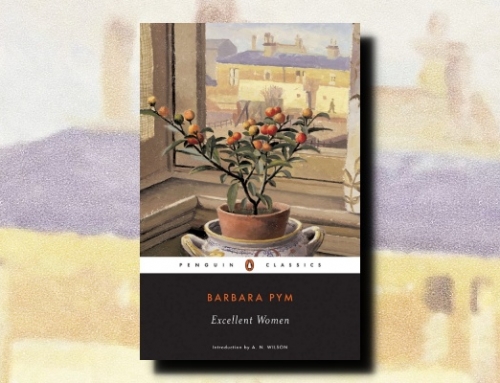
Family and Borghesia
by Natalia Ginzburg (1977)
translated from the Italian by Beryl Stockman (1988)
NYRB Classics (2021)
124 pp
 A month ago, I had not read anything by Natalia Ginzburg. But thanks to New Directions and NYRB Classics I have now read five, including this volume of two novellas — Family and Borghesia, — published by NYRB Classics earlier this month. New Directions is publishing Voices in the Evening next week, and so I’ll have a review of it up soon. And then . . . on to the others! I’m particularly excited to read Family Lexicon, but I’ll keep going. It’s been fun to have a spontaneous deep dive into an author’s work!
A month ago, I had not read anything by Natalia Ginzburg. But thanks to New Directions and NYRB Classics I have now read five, including this volume of two novellas — Family and Borghesia, — published by NYRB Classics earlier this month. New Directions is publishing Voices in the Evening next week, and so I’ll have a review of it up soon. And then . . . on to the others! I’m particularly excited to read Family Lexicon, but I’ll keep going. It’s been fun to have a spontaneous deep dive into an author’s work!
Family and Borghesia were written and published more than a decade after the other Ginzburgs I’ve read. In some ways, they still felt of a piece with the others: Ginzburg is writing about the day-to-day interactions among a small group of people — their loves and disappointments, their affairs and deaths — as the years speed by.
That said, I found these two novellas quite different from the others. I felt more focused on the passage of time and what is lost. Also, Ginzburg tells these two stories with less dialogue (particularly notable since I just read Voices in the Evening and it moves along in great swaths of dialogue) and a lot more detail (indeed, by page count these may be novellas, but they are dense, ink-laden pages, crammed with details and barely a paragraph break in sight — by word count, these are getting up there). Somehow, despite the detail-rich paragraphs (and I don’t mean to imply they are overdone at all), the time passes more swiftly in these, and I walked away with a greater sense of a life lived and remembered through strong impressions rather than from dramatic events and revelations.
I suppose it makes sense I would walk away with that impression, since Ginzburg ends Family with a beautiful passage that encapsulates this:
At that point, he could not remember anything about himself, what clothes and shoes he had worn, what wonder and curiosity had woven and unwoven itself in his thoughts at the time. His memory had thrown all that out as useless. Instead, he had retained a whole pile of random detailed impressions, that were hazy, but light as a feather. He had kept the memory of voices, mud, umbrellas, people, the night.
I think that’s just lovely. I’m trying to figure out just how Ginzburg accomplishes this. The story begins with a generic sentence, though one that nevertheless manages to evoke a certain feeling within me: “A man and a woman went to see a film one summer Sunday afternoon.” But just look at how Ginzburg starts to build out this story through sentences that are not thrilling in and of themselves. Here is the next bit of text:
With them were a young girl of about fourteen and two boys of about seven. The man was tall and handsome with black hair, a large dark-skinned face and a large mouth set in a serious line. He wore black glasses and a crumpled blue suit. the woman, who was short and not very good-looking, had a tiny face and an olive complexion. Her black hair was twisted into a tight knot on top of her head. She had a long thin nose, green eyes and bushy eyebrows, sloping shoulders and broad hips.
Somehow, Ginzburg manages to keep me reading something that feels more like her notes. Somehow this man and woman become people with ups and downs. Somehow this detail doesn’t push me away but brings me in. It’s bold and the result is kind of magical and unexpected.
The man is Carmine Donati, the woman, Ivana Riviera. They grew up together and became lovers before going their separate ways, only to come back together when each has established the foundation for a different life. I love how Ginzburg, again through detail rich sentences that feel lively, brings us a bit of their backstory:
Many years before, when they were lovers and lived together, they had argued constantly about everything and tried to change one another. She wanted him to be freer. He thought she was untidy in the way she organized her time and kept house, and in her ideas. They used to wake up in the night and start arguing, and discussing each other’s faults and wonder aloud whether they should get married or not.
It’s lovely and impressionistic, I think. I don’t really know what they are arguing about specifically, and they likely don’t remember either, a few decades on. Interestingly, Ginzburg is not bringing them back together to have a torrid affair or even to really regret separating. It seems both know their life together would have been rather terrible. Though a traumatic event led to their separation, it seems they know that their can now be friends because much of that is in the past.
That doesn’t mean the past isn’t haunting them, though. As it builds up, it becomes more and more clear that life’s possibilities are dwindling, and Carmine finds he cannot escape, “because even if he avoided those particular cafés and restaurants, he could not avoid the streets, and nearly every street in town was sick and infested, swarming with pestilent memories of wasted moments.”
Borghesia, while different in substance, has a similar style and leads to some adjacent insights. We start again with a general but inviting opening sentence: “A woman who had never kept any animals was given a cat.” The woman, Ilaria Boschivo, does not necessarily want this Siamese cat, but there it is, hiding above her curtains. While this first cat does not last long, she replaces it with another, and so on. It’s not that the cats individually hold much meaning (though some get there), it’s more what their lives, lived in the same space but otherwise unknowable, mean to Ilaria:
She would sometimes think how the years accumulate on a cat too, so that every time you saw it walk by silently at your feet, the burdensome memory of everything that had happened to you went by with it.
I don’t believe I will long remember the particular side characters or events in either of these stories, though I enjoyed their worlds a lot. No, for me these two novellas are strong because of their tone and construction, because of the way they feel similar to memories, vast, rich, but slipping. I think it was done deliberately this way, and I admire Ginzburg all the more for having the ability and courage to take me to this unique space.








Leave a Reply